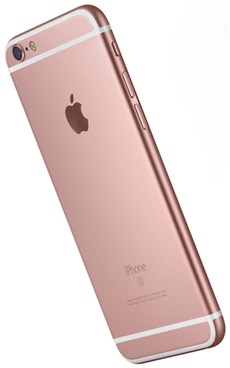Apple could face up to $862 mn in damages over patent infringement
14 Oct 2015
Apple Inc may have to pay $862 million in damages after a US jury yesterday said the iPhone maker used technology patented by the University of Wisconsin-Madison's licensing arm without permission in chips found in many of its most popular devices.
 The jury in Madison, Wisconsin, added the patent, which enhanced processor efficiency was valid. The trial will now move on to calculate the amount Apple would need to pay to the university.
The jury in Madison, Wisconsin, added the patent, which enhanced processor efficiency was valid. The trial will now move on to calculate the amount Apple would need to pay to the university.
Apple was taken to court by Wisconsin Alumni Research Foundation (WARF) in January 2014 over alleged infringement of its 1998 patent for improving chip efficiency.
The jury is looking into whether Apple's A7, A8 and A8X processors, used in iPhone 5s, 6 and 6 Plus, and also in several versions of the iPad, violated the patent.
Cupertino, California-based Apple denied having infringed the patent, arguing it was invalid, according to court papers.
Apple earlier tried to convince the US Patent and Trademark Office to review the patent's validity, but its attempt was rebuffed by the agency in April.
Judge William Conley, who is presiding over the case has scheduled the trial to proceed in three phases - liability, damages, and finally, whether Apple infringed the patent willfully, which could lead to higher penalties.
The jury, which started hearing the case last week, yesterday said it found Apple liable for infringement of all six patent claims, the verdict form shows.
The patent in question, number 5,781,752, which was described as a "Table based data speculation circuit for parallel processing computer."
The patent stands in the names of four researchers at the University of Wisconsin in July 1998.
WARF had also taken Intel to court over the same patent, which the chip maker settled case before it came to trial by paying WARF a lump sum of $110 million to license the patent, according to a judge's order filed in the Apple case.
The university said in a complaint, Apple had filed patent applications that cited the '752 patent as prior art, which pointed to Apple being fully aware.
It also said that Apple had a stated policy not to accept licensing proposals "from outside entities like WARF, making the litigation of this lawsuit necessary."




















